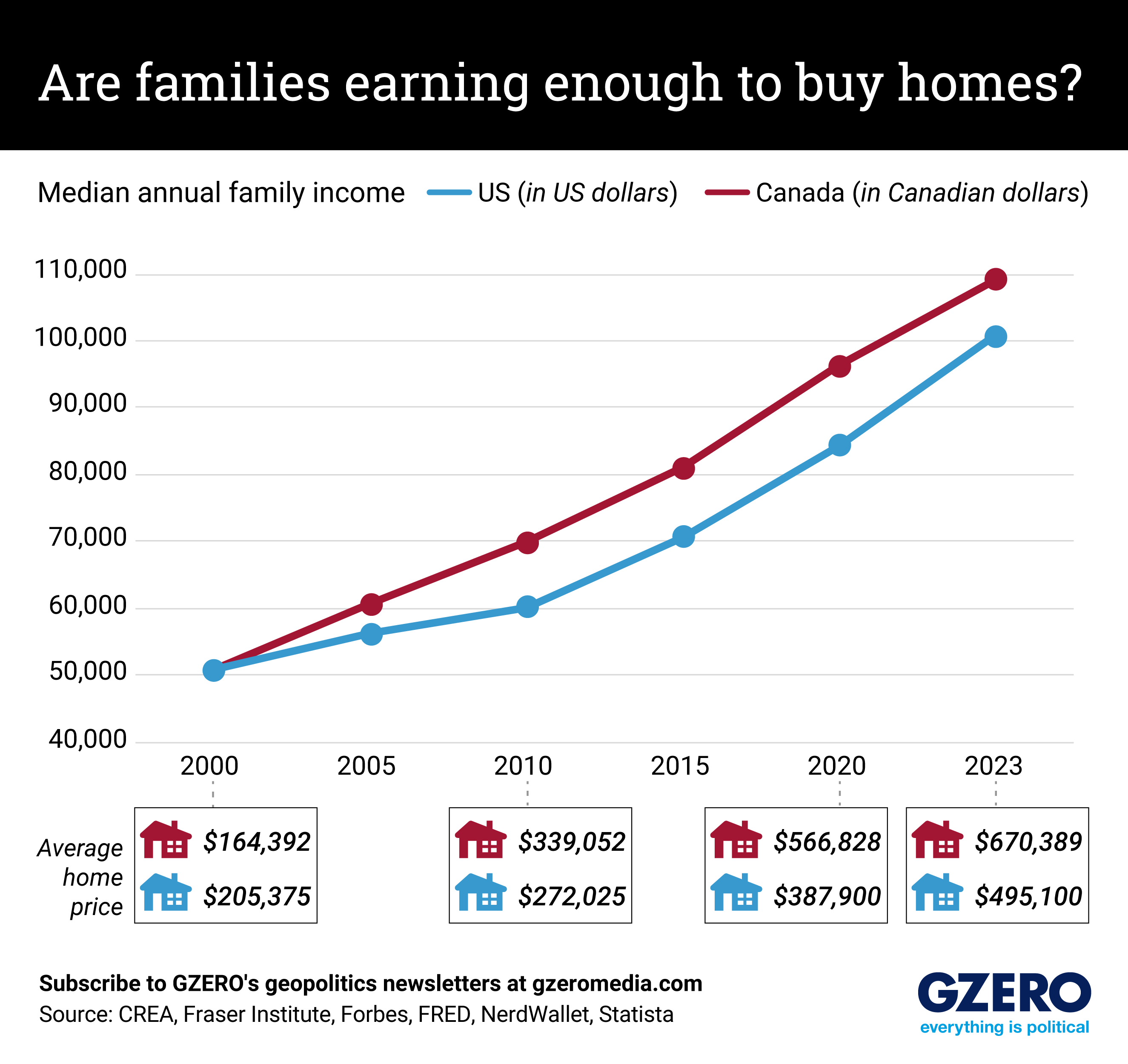January 02, 2025
Over the past two decades, home prices in the US and Canada have skyrocketed, and household incomes haven’t kept up. As both countries face housing shortages, the issue has made its way to the center of politics on both sides of the border.
President-elect Donald Trump has promised to loosen building regulations and deport millions of undocumented immigrants to increase the supply of homes. Meanwhile, after promising to build 3.9 million homes by 2031 back in April, Prime Minister Justin Trudeau replaced his housing minister with Nathaniel Erskine-Smith in December. Erskine-Smith has yet to propose any additional policies to solve the crisis.
In 2023, the average Canadian home cost $670,389, more than 10 times the average Canadian annual income. In 2003, for comparison, a home cost just 5.8 times the average household income. And in the US, median household income increased by about 60% between 2000 and 2020, while the average price of a home nearly doubled.
Small wonder that people in both countries are increasingly pessimistic about the prospect of homeownership. A Gallup survey from May found the vast majority of Americans (76%) say it’s a bad time to buy a house. It seems that on both sides of the border, more and more people are giving up on ever owning a home.
Here’s a look at the increase in home prices and median household income in Canada and the US, from 2000 to 2020. We have to ask: Is homeownership even a dream worth pursuing now? We’d love to hear your thoughts. Write to us here.
More For You
Mastercard Economic Institute's Outlook 2026 explores the forces redefining global business. Tariffs, technology, and transformation define an adaptive economy for the year ahead. Expect moderate growth amid easing inflation, evolving fiscal policies, and rapid AI adoption, driving productivity. Digital transformation for SMEs and shifts in trade and consumer behavior will shape strategies worldwide. Stay ahead with insights to help navigate complexity and seize emerging opportunities. Learn more here.
Most Popular
- YouTube
Despite a ceasefire in Gaza, Israel is still not letting foreign journalists in to independently verify what’s happening on the ground, CNN’s Clarissa Ward tells Ian Bremmer on GZERO World.
- YouTube
On Ask Ian, Ian Bremmer breaks down the steady escalation of US pressure on Venezuela and why direct military action is now a real possibility.
US President Donald Trump arrives to announce reciprocal tariffs against US trading partners in the Rose Garden of the White House in Washington, DC, USA, on April 2, 2025.
POOL via CNP/INSTARimages.com
From civil conflicts to trade wars to the rise of new technologies, GZERO runs through the stories that have shaped this year in geopolitics.
© 2025 GZERO Media. All Rights Reserved | A Eurasia Group media company.
